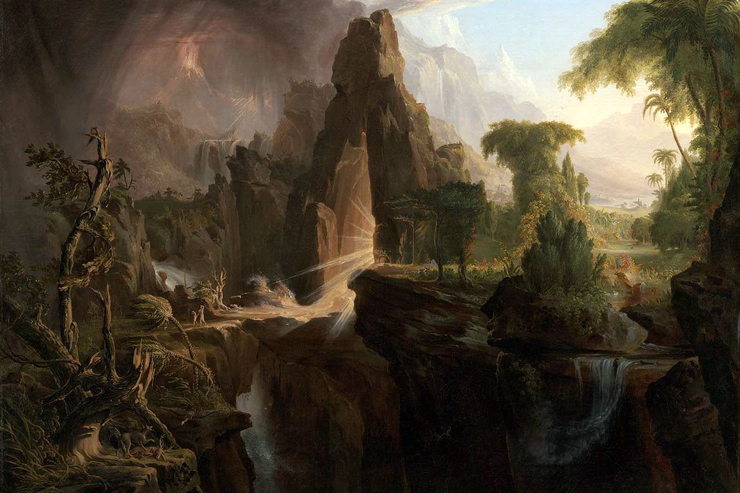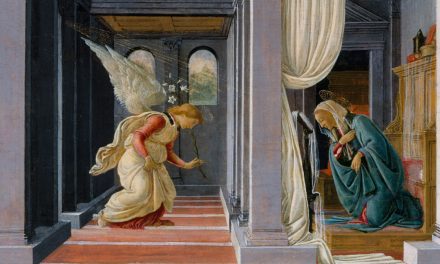Next week, our churches will be packed with people, as the human spirit is drawn to the annual observance of our sinfulness. Why are people drawn to church on Ash Wednesday? I would like to believe that even amongst the din of modern culture and the silencing of conscience, there remains something in us that remembers who we were created to be and how far we fall from that height.
One of the options for the words we hear as the ashes are traced on our foreheads is the reminder: “Remember, man, you are dust and to dust you will return.” This is a vivid reminder, of course, of our mortality. We begin this 40 days with a call to repentance and a reminder of our sinfulness and unworthiness.
Several years ago, I heard a lecture from a theologian that prompted new reflection on those words. Richard Bulzacchelli pointed out to me that those words also remind us of something else. The dirt from which Adam was created was the dirt of the Garden of Eden.
The ashes are a reminder of our mortality, but also that the end of our earthly lives is not our end. (Philosophically speaking, the telos or “end” of something is the thing’s purpose or goal.) The human person is “the only creature on earth that God has willed for its own sake, and he alone is called to share, by knowledge and love, in God’s own life. It was for this end that he was created, and this is the fundamental reason for his dignity” (CCC 356).
When we are reminded on Ash Wednesday that we will return to dust, it should also be a reminder that we are called to return to paradise. Not an earthly paradise between the Tigris and Euphrates, but our heavenly home.
We were created from dirt, but it was good dirt. And we are good.
The Catechism reminds us, “The first man was not only created good, but was also established in friendship with his Creator and in harmony with himself and with the creation around him, in a state that would be surpassed only by the glory of the new creation in Christ” (CCC 374).
The 40 days of Lent are a time to reflect on our mortality. This earthly life is passing, and yet I so often live as if I was made for this world. I surround myself with comforts and things that please my senses. I fill my time and my life with earthly treasures. How can I live the next 40 days stripping myself of these things so that I can live not for this life but for the next?
So these days are also a time to reflect on our dignity. Not to puff ourselves up, but to reflect on how much we have been given and the high vocation to which we have been called. As we reflect on our true calling, perhaps we will find how far we have fallen from that high calling at times. What in my life is lowering me to a level beneath my dignity?
“Remember, man, you are dust and to dust you will return.”
In his novel Prince Caspian, C.S. Lewis draws our attention to this complexity when Aslan reminds Caspian: “You come of the Lord Adam and the Lady Eve… And that is both honour enough to erect the head of the poorest beggar, and shame enough to bow the shoulders of the greatest emperor on earth.”
This is the reality we are reminded of when we receive ashes next Wednesday. Human beings are the only creatures on earth that God willed for their own sake. We were created to be in friendship with Him. What in my life has prevented or harmed that friendship? We are frail, mortal beings that have inherited the effects of original sin from our first parents. We are not worthy of God’s friendship, and yet He became flesh in order to bring us back to Him. We are mortal, but He wishes to give us eternal life.
May this Lent be a time of remember both our unworthiness and our dignity. We came from dirt. But it was the dirt of Paradise.
















